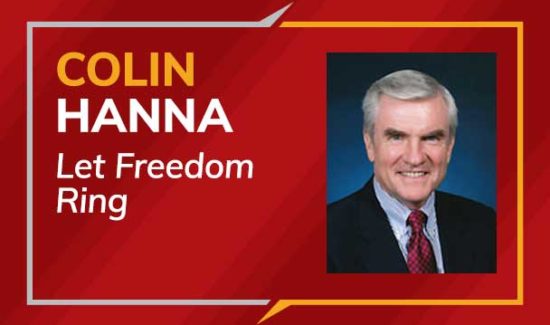Zero Emission Credits for Radioactive Waste?
“Zero emissions credits†for radioactive waste?
Late last week, a federal judge in Illinois dismissed a lawsuit filed against a one-year-old state law that subsidizes nuclear power through higher bills on residential and business customers. On Monday, the Electric Power Supply Association (EPSA), the lead plaintiff seeking an injunction, appealed the ruling to the 7th Circuit in Illinois, but the judge’s dismissal of the suit serves as a cautionary tale for a coalition of business and consumer interests in Pennsylvania working against such a law here: stop it from ever getting enacted in the first place.
“The competitive energy market is working very well in Pennsylvania, and we want as many generators contributing as much power to the grid as possible,†said PMA President David N. Taylor, who is a leader of the Citizens Against Nuclear Bailouts coalition. “But state government should not force ratepayers to subsidize an industry that can’t compete in the marketplace.â€
In Illinois, the judge sided with Exelon, the big player behind the multi-state effort to prop up aging, unprofitable nuke plants, saying that the parties bringing the action, including generators Dynegy, Calpine, NRG and Eastern Generation, had no standing in the case.
Under the Illinois law, utilities are required to pay for “zero emission credits†to bail out two non-competitive plants in the state ��" (never mind the plutonium). The additional costs then get passed on to the ratepayers.
John E. Shelk, President and CEO of EPSA, said that instead of competing for market share you are having generators competing against subsidies.
“We’re dealing with a contagion of subsidies,†Shelk said. “This law interferes in a wholesale market that with the growth of natural gas as a player in that market has become a very competitive one. It throws the entire market off kilter.â€
Illinois Lawmakers and Governor Bruce Rauner sold the bill, labeled as the Future Energy Jobs Act, as both pro-jobs and pro-environment. Studies show, however, that the law will cost more jobs than it saves and places an even costlier premium on some ratepayers, who are already paying more by opting into alternative generation programs.
An analysis by the no-nuke bailout group in Illinois, the BEST Coalition, which like the Pennsylvania coalition includes AARP and other influential consumer groups as members, shows that the Illinois law will result in at least 44,000 jobs being lost through 2030. It will also slash economic output in Illinois by $14.7 billion and reduce state and local government tax revenue by $429 million. Overall the rate hike at $13.3 billion will be the largest in U.S. history.
Todd Maisch, President and CEO of the Illinois Chamber of Commerce, said that the largest employers, especially manufacturers, will be hit hardest.
“Exelon will tell you that the law contains caps so the hit won’t be that bad,†Maisch said. “But they raised the base before the caps were imposed. We are talking millions more in rates for some of the largest employers.â€
EPSA is a party in another suit, brought in federal district court in Manhattan in October, against a “zero emission credit†there ordered by the New York Public Service Commission (PSC) under a directive from Governor Andrew Cuomo last August. Cuomo sold it as jobs saving initiative for three upstate aging nuclear plants. It was a curious sell, as he was the principal force behind the April 2021 scheduled closing of the Indian Point nuclear plant, which today supplies ten percent of the state’s power generation. But the Indian Point plant had been targeted for years as it sits only 36 miles from Midtown Manhattan.
Shelk said he expected the New York decision on Exelon’s move to dismiss before the Illinois decision, but they will appeal in New York as well if the ruling goes against them.
Meanwhile, in Connecticut an initiative passed the Senate but failed in the House. In New Jersey and Ohio, the proposal has failed to gain traction. New Jersey is focused on a gubernatorial campaign and Ohio, with a strong natural gas production presence, has so far kept the initiative bottled up.
Exelon outlined its Pennsylvania strategy in a May 30 press release announcing the September 2019 closing of Three Mile Island; a closing the company said was premature. It will try to win the approval of a “zero emission credit program†as in New York and Illinois or have nuclear added to Pennsylvania’s Alternative Energy Portfolio Standards, which requires a certain amount of generation to come from wind, solar and other “zero emission†sources.
“In the same way we’re supposed to pretend that the nuclear industry didn’t receive extra billions from ratepayers to compensate them for their assets, now we’re supposed to pretend that nuclear reactors don’t generate deadly radioactive waste that’s toxic for a thousand years,†PMA’s Taylor said.
Steve Kratz, a spokesman for the Citizens Against Nuclear Bail Out Coalition, said they have been on the lookout for Exelon language getting inserted as part of the budget process ��"with the spending half of the budget finished possibilities include insertion in a tax or Fiscal Code bill as part of the revenue side of the plan. It’s unclear as of this writing when the House and Senate will send the revenue plan to the governor.
“Pennsylvania’s nuclear industry has already benefited from recovering an estimated $10 billion in stranded costs so that the industry could adjust to deregulation and market competition,†Kratz said. “Now the market has changed and they want more help because they can’t compete.â€
Finally, the electric grid monitor, PJM Interconnection, said that Exelon’s closing of TMI will have no effect on the supply or price of electricity.
If the courts don’t intervene in New York and Illinois and if Exelon does manage to slip the subsidy language into other state laws, the Federal Energy Regulatory Commission (FERC) could intervene. FERC has jurisdiction over the interstate wholesale markets and Shelk said FERC could move to insulate the states that have passed the subsidy laws, which unbalance the markets.
“It will limit the damage to the markets done by those states by insulating them,†he said. “But this will place a greater burden on ratepayers there.â€
HEADLINES:
Putting American steelworkers first
Northern Panhandle Activity Picking Up in Wake of Shell’s Cracker Plans
New Mexico court throws out ADA lawsuit scam, makes litigation industry pay the tab
Don’t miss any new episodes of PMA Perspective
Phone: (717) 232-0737 | 225 State Street, Harrisburg, PA 17101
Facebook • Twitter
PMA Bulletin © 2017 All Rights Reserved





